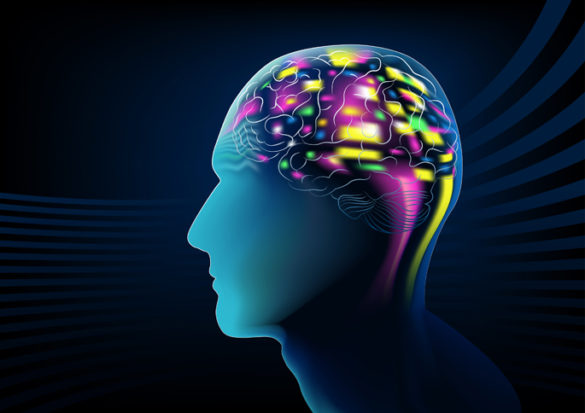by Leigh MacMillan

The nucleus accumbens (NAc) is a brain region that integrates diverse inputs to coordinate motivated and reward-based behavior and has a role in addiction. Histamine-producing neurons innervate the NAc, but how histamine contributes to NAc neuronal circuits is undefined.
Kevin Manz, PhD, a postdoctoral fellow in the Brad Grueter lab, and colleagues used electrophysiology, optogenetics and stress models in mice to explore mechanisms of histamine signaling in NAc circuit function.
The investigators report in Biological Psychiatry that histamine reduces excitatory gain on certain NAc neurons through H3 receptors and a specific signaling pathway. They found that NAc inputs coming from the prefrontal cortex and from the mediodorsal thalamus were differentially regulated by histamine and that stress recruited H3 receptor signaling in the NAc.
The findings provide insight into an understudied neuromodulatory system in the NAc and implicate histamine in responses to stress. NAc histamine signaling may offer a novel therapeutic target for stress-related pathologies such as addiction, the authors suggest.
This research was supported by the National Institute on Drug Abuse, part of the National Institutes of Health (grant DA040630).











